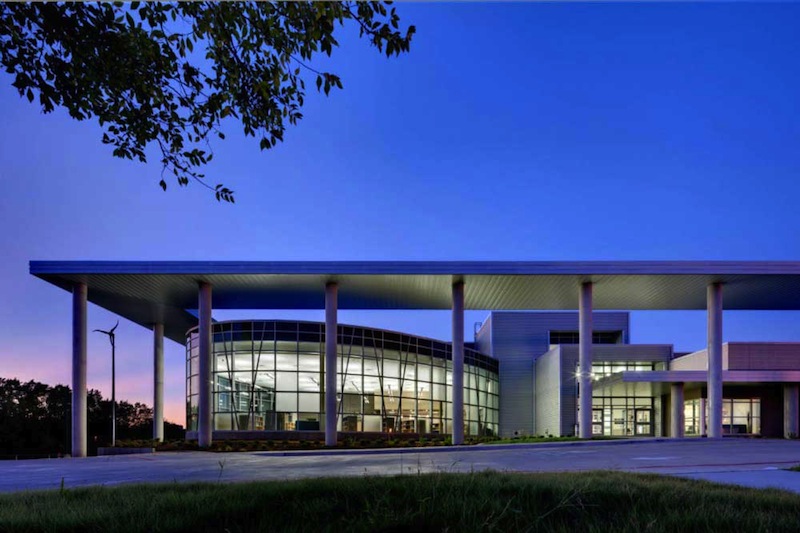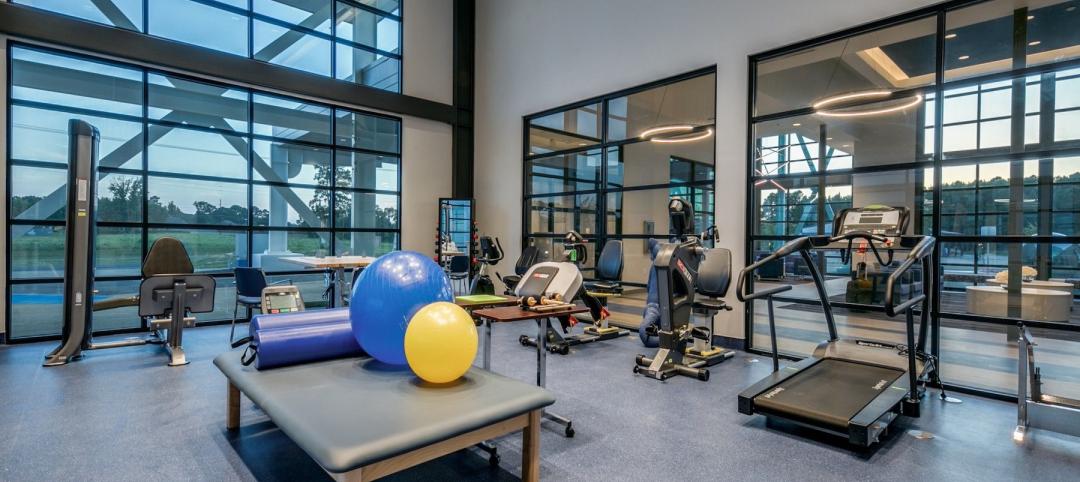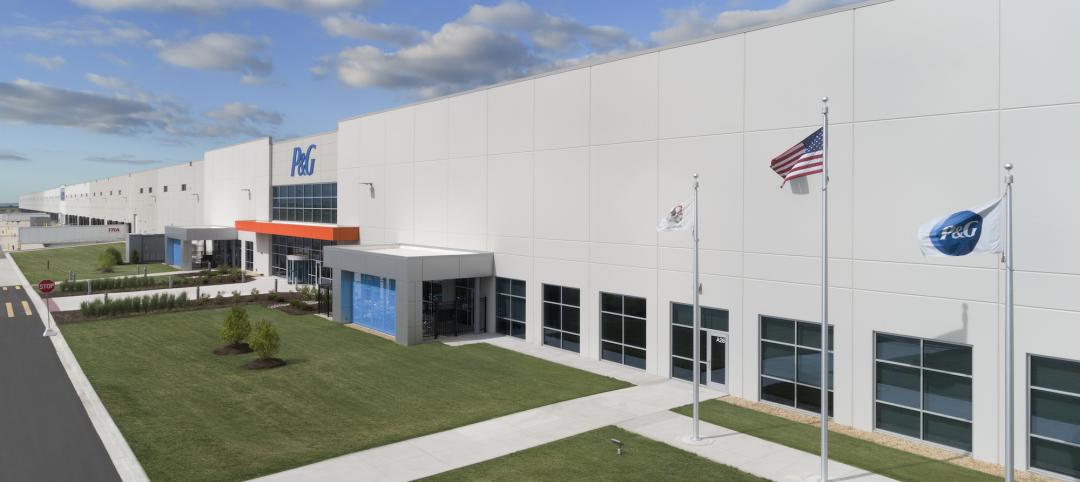The Center for Green Schools at the U.S. Green Building Council (USGBC) today announced its third annual “Best of Green Schools” list, which recognizes top educational institutions, individuals and initiatives across the country for environmental efforts.
“In reviewing the nominations for the Best of Green Schools 2013 list, what we experienced more than anything was profound gratitude for the thousands of champions who are catalyzing the green schools movement and demonstrating to the nation and the world that where our children learn matters,” said Rachel Gutter, director of the Center for Green Schools at USGBC. "This list represents exemplary leadership from schools, campuses, students, policy makers and more who are raising the bar when it comes to creating healthy, safe and resource-efficient schools.”
The Best of Green Schools list highlights schools, individuals and communities working toward the common goal of healthy, high-performing learning places for all. The list recognizes the hard work being done across the country to make schools better and honors the best examples in the green schools movement.
The recipients of the Best of Green Schools 2013 include:
K-12 School – Lady Bird Johnson Middle School (Irving, Texas): LEED Gold Lady Bird Johnson Middle School is the first net-zero energy school in the state of Texas. At 152,250 square feet, the campus is the largest net-zero educational facility in the country.
Higher Education Institution – Emory University (Atlanta, Ga.): Emory University has identified sustainability as one of its top priorities — to help restore the global ecosystem, foster healthy living and reduce the university’s impact on the local environment. Emory has among the highest number of square feet of LEED-certified space of any campus in America.
Ambassador – Lori Braunstein, Delaware Valley Green Building Council (DVGBC): As director for green schools at DVGBC, Braunstein has developed an effective and comprehensive strategy for engaging and supporting teachers, students, facilities managers and administrators around sustainability programs in schools. She also initiated the statewide Pennsylvania Green & Healthy Schools Partnership to bring together key stakeholders from the green building, environmental education and health and wellness fields around an agenda for green and healthy schools.
Policy Maker – Colorado state Sen. Andy Kerr: Kerr has been one of the strongest proponents of green schools in Colorado and throughout the country for many years. In the spring of 2013, he successfully passed SB 13-279, requiring all school districts in Colorado to build new schools or to reconstruct schools to the highest possible energy efficiency.
Moment for the Movement – California Proposition 39, the Clean Energy Jobs Act: Under the landmark Clean Energy and Jobs Act, $2.5 billion over the next five years will be directed toward energy efficiency projects and repairs to promote healthy, high-performing schools in California.
Business Leadership – Houghton Mifflin Harcourt (HMH): HMH is helping to transform learning environments by driving the conversation around sustainability education and the Common Core. HMH also serves as a partner of the Center for Green Schools’ Green Apple program, making a financial contribution in honor of school customers who switch from physical textbook samples to the (greener) virtual alternative.
Community Event – Green Apple Day of Service event at Duckett’s Lane Elementary School (Elkridge. Md.): Grimm +Parker Architects joined Dustin Construction and the students, principal and staff of Duckett’s Lane Elementary School on Sept. 29, 2013, to host and coordinate a student-led scavenger hunt for environmental features in and around the new school. Stations were set up to demonstrate how the building and site are teaching tools for their environmental literacy curriculum.
Collaboration – Celebrate Sustainability: This "green partnership" is among Virginia Tech, the town of Blacksburg, Va. and Sustainable Blacksburg, a local citizen's group in the town. Every year, the three organizations come together to program a week's worth of events that recognize and celebrate the sustainability achievements of the school and the town over the previous year.
Transformation – The Green Schools Academy (as led by Jenna Cramer, vice president of green schools for the Green Building Alliance): The Green Schools Academy program brings together private, public, parochial and charter schools to work toward a culture of sustainability and transformation in healthy schools for all children.
Student Leadership – Bluegrass Youth Sustainability Council (Fayette County, Ky.): The Bluegrass Youth Sustainability Council (BYSC) is a project-based organization composed of students from all Fayette County high schools. The BYSC meets monthly to discuss collaborative environmental outreach projects, partnership prospects and leadership and post-secondary opportunities in all areas of sustainability including energy management, outdoor classrooms, waste management, water quality and air quality.
Please visit centerforgreenschools.org/bestof2013 for more information on each of this year’s recipients.
Related Stories
Digital Twin | Nov 21, 2022
An inside look at the airport industry's plan to develop a digital twin guidebook
Zoë Fisher, AIA explores how design strategies are changing the way we deliver and design projects in the post-pandemic world.
Healthcare Facilities | Nov 17, 2022
Repetitive, hotel-like design gives wings to rehab hospital chain’s rapid growth
The prototype design for Everest Rehabilitation Hospitals had to be universal enough so it could be replicated to accommodate Everest’s expansion strategy.
Industrial Facilities | Nov 16, 2022
Industrial building sector construction, while healthy, might also be flattening
For all the hoopla about the ecommerce boom and “last mile” order fulfillment driving demand for more warehouse and manufacturing space, construction of industrial buildings actually declined over the past five years, albeit marginally by 2.1% to $27.3 billion in 2022, according to estimates by IBIS World. Still, construction in this sector remains buzzy.
Seismic Design | Nov 16, 2022
SPC-4D: 7 reasons California hospital building owners should act now to meet seismic compliance
Seismic compliance with the applicable California building codes is onerous and disruptive for building owners, especially for a building in the heavily regulated sector of healthcare. Owners of older buildings that house acute care services have a big deadline on the horizon—Jan. 1, 2030, the cutoff date to upgrade their buildings to SPC-4D.
Wood | Nov 16, 2022
5 steps to using mass timber in multifamily housing
A design-assist approach can provide the most effective delivery method for multifamily housing projects using mass timber as the primary building element.
Green | Nov 13, 2022
NREL report: Using photovoltaic modules with longer lifetimes is a better option than recycling
A new report from the U.S. National Renewable Energy Laboratory (NREL) says PV module lifetime extensions should be prioritized over closed-loop recycling to reduce demand for new materials.
Green | Nov 13, 2022
Global building emissions reached record levels in 2021
Carbon-dioxide emissions from building construction and operations hit an all-time high in 2021, according to the most recent data compiled by the Global Alliance for Buildings and Construction.
University Buildings | Nov 13, 2022
University of Washington opens mass timber business school building
Founders Hall at the University of Washington Foster School of Business, the first mass timber building at Seattle campus of Univ. of Washington, was recently completed. The 84,800-sf building creates a new hub for community, entrepreneurship, and innovation, according the project’s design architect LMN Architects.
Giants 400 | Nov 8, 2022
Top 110 Sports Facility Architecture and AE Firms for 2022
Populous, HOK, Gensler, and Perkins and Will top the ranking of the nation's largest sports facility architecture and architecture/engineering (AE) firms for 2022, as reported in Building Design+Construction's 2022 Giants 400 Report.
Giants 400 | Nov 8, 2022
Top 60 Sports Facility Contractors and CM Firms for 2022
AECOM, Mortenson, Clark Group, and Turner Construction top the ranking of the nation's largest sports facility contractors and construction management (CM) firms for 2022, as reported in Building Design+Construction's 2022 Giants 400 Report.

















